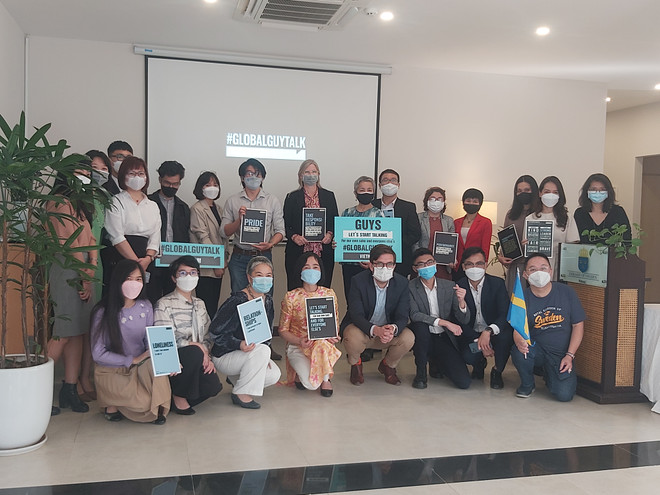Hanoi (VNA) - The Ambassador of Sweden to Vietnam, Ann Måwe, said she believes Vietnam has posted a range of achievements in ensuring gender equality and is on the right track in this endeavour.
Speaking with the Vietnam News Agency on the occasion of the 13th National Women’s Congress, Ambassador Måwe shared her impressions of efforts to institutionalise gender equality in the country.
Gender equality, she noted, was included in the 1946 Constitution, the first after Vietnam gained independence, with equal rights between men and women enshrined in Article 9, which states “Women have equal rights with men in all aspects”. In 2006, Vietnam passed the Law on Gender Equality, and the concept is also reflected in other laws, including the Law on Population and the Law on Marriage and Family.
This shows that Vietnam is on the right track in eliminating gender inequality, she said.
Vietnam’s “National Strategy on Gender Equality for 2021-2030” contains ambitious goals, she went on, adding that encouraging women entrepreneurship is central to the strategy.
She said she is impressed by some of the goals set out, such as lifting the ratio of female company directors or business owners to at least 27 percent by 2025 and 30 percent by 2030, and cutting the average time women spend doing housework compared to men to 1.7 times by 2025 and 1.4 times by 2030. Another goal is to integrate gender and gender equality into the curriculum of schools and pedagogical universities from 2025.
 Participants at the second “Globalguytalk” dialogue, held by the Embassy of Sweden on March 8. (Photo: Hoang Nhuong)
Participants at the second “Globalguytalk” dialogue, held by the Embassy of Sweden on March 8. (Photo: Hoang Nhuong) Some 70% of women of working age in Vietnam are part of the labour market, which is an impressive figure given it is almost the same as members of the Organisation for Economic Cooperation and Development (OECD), including Sweden. Women account for almost half of Vietnam’s workforce, and create about 40 percent of its wealth. This demonstrates the important role they play in economic development, Ambassador Måwe said.
Vietnam’s efforts in eliminating gender inequality over recent times is clear to see. She recommended, however, that it continue to improve certain aspects surrounding the task, such as gender-based violence, the trafficking of women and girls, the participation of ethnic women in socio-economic development, and the proportion of female ministers in the government.
Since establishing diplomatic ties with Vietnam in 1969, Sweden has effectively implemented a variety of support and cooperation programmes with the country, including on gender equality. Ambassador Måwe said she feels pleased and believes such programmes have contributed to Vietnam’s achievements over the years.
Sweden will continue to work closely with Vietnam through the United Nations and regional initiatives from the Swedish International Development Cooperation (SIDA). Among other endeavours, she explained, it will continue to share its experience with Vietnam in promoting gender equality, including how to better engage men./.






























